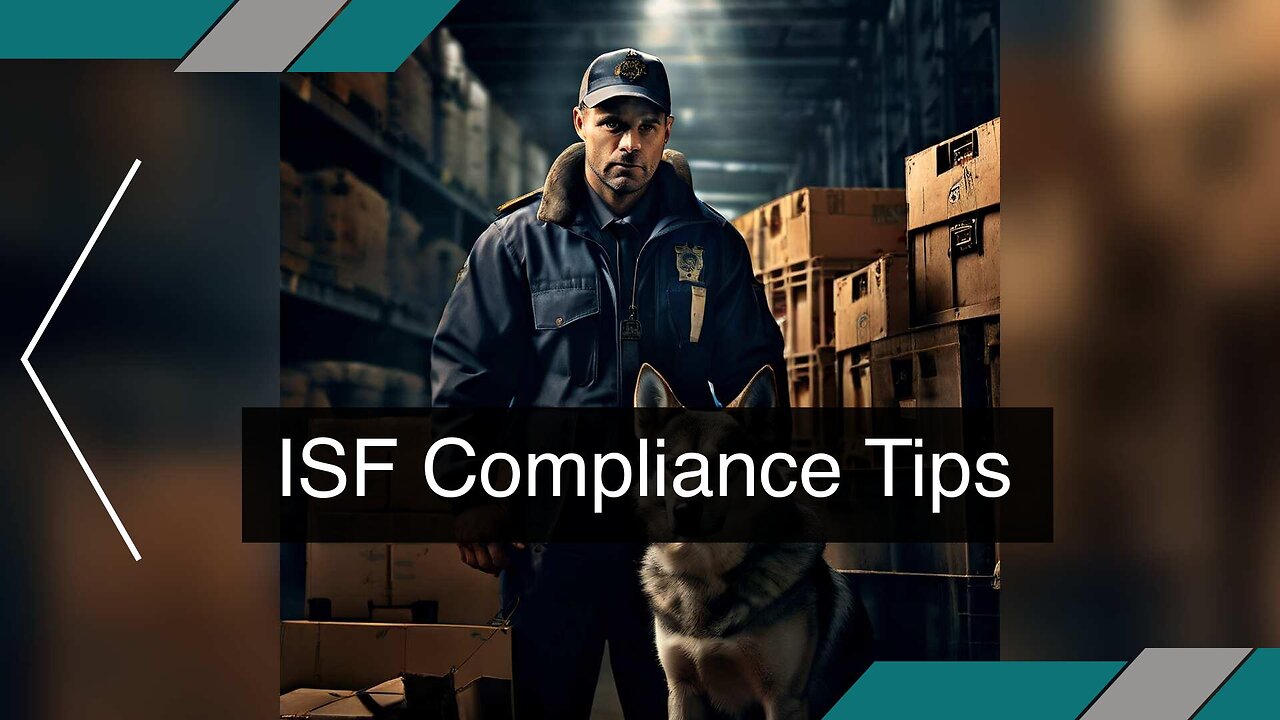Premium Only Content

Mastering ISF Compliance: Best Practices for Trade Compliance Audits
ISF Checklist || 805-970-7918 || contact@isfchecklist.com || www.isfchecklist.com
In today's video, we discussed the best practices for ISF compliance and shared valuable tips to ensure successful trade compliance audits. ISF compliance involves providing detailed information about incoming ocean shipments to US Customs and Border Protection (CBP) before their arrival. One essential aspect of ISF compliance is having a customs bond in place to guarantee the payment of duties, taxes, and fees. To ensure successful trade compliance audits, it is important to submit ISF information in a timely manner, provide accurate and complete details about the shipment, maintain open communication with your customs broker or freight forwarder, and keep records of all ISF filings and related documents.
In addition to these best practices, there are a few more tips to help you succeed in preparing for a trade compliance audit. Establishing and maintaining an internal compliance program, investing in training and education for your staff on international trade compliance, conducting regular self-audits of your import processes and documentation, and staying informed about changes in trade regulations and customs requirements through industry newsletters, seminars, and trade associations are some additional measures you can take.
By following these best practices and implementing robust compliance measures, you can ensure smooth operations and avoid unnecessary penalties or delays.
#usimportbond #isfcustomsbroker #uscustomsclearing #isfentry
Video Disclaimer Here: This video is purely educational and has no ties with the US government.
-
 3:47:10
3:47:10
SynthTrax & DJ Cheezus Livestreams
1 day agoFriday Night Synthwave 80s 90s Electronica and more DJ MIX Livestream Michael Jackson / AI Art Compilation Edition
39.9K -
 1:03:57
1:03:57
Sarah Westall
6 hours agoMara Lago Accord Joins the Fed, Fed Waves the White Flag & more w/ Andy Schectman
22K -
 2:44:12
2:44:12
I_Came_With_Fire_Podcast
1 day ago*BREAKING* Special Guest Katarina Szulc
32K5 -
 3:22:20
3:22:20
megimu32
6 hours agoOFF THE SUBJECT: FAFO Friday! Bodycams & Mario Kart Mayhem!
21.6K4 -
 55:36
55:36
Flyover Conservatives
1 day ago4 Strategies to Create Opportunity from Nothing - Clay Clark | FOC Show
27.3K -
 1:49
1:49
Gaming on Rumble
12 hours agoWhat is the Rumble Creator Program!?!? (Active Premium Creators) | Lvl UP
27.3K2 -
 5:56:26
5:56:26
Midnight In The Mountains
8 hours agoGaming w/ PER·SE·VER·ANCE | Midnights Play Fortnite | Split Screen Action!
18.2K2 -
 3:56:17
3:56:17
Nerdrotic
10 hours ago $13.80 earnedLet's TACO-bout Take Us North, Hollywood COPE! Cracker Barrel CRACKED! | Friday Night Tights 369
95.2K8 -
 1:16:30
1:16:30
RiftTV
9 hours agoHow Blue Light is Turning You Gay | The Rift | Guest: Jack Kruse
32.9K10 -
 LIVE
LIVE
Eternal_Spartan
16 hours ago🟢 Eternal Spartan Plays Final Fantasy 7 Remake Intergrade | USMC Vet | Join the Best Chat on Rumble
43 watching